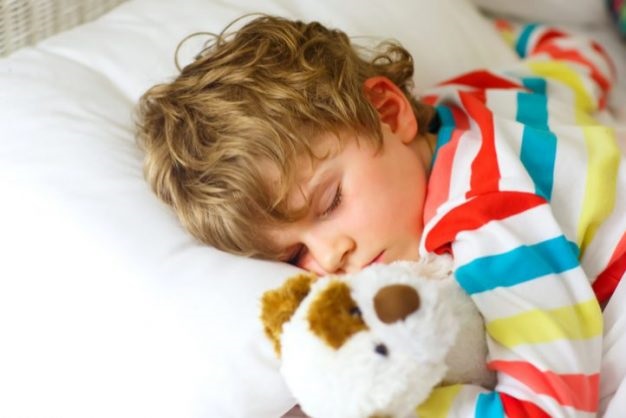Keeping Your Kids Stress-Free: What Habits You Should Develop in Them

We live in the age when it is hard to find a single person not affected by stress on everyday basis. And stress is much more serious than just being tense and irritable for a little while – it has long-term health consequences. Fortunately, there are ways to alleviate its effects, and a lot in our relationship with stress depends on our habits. And while for adults it is usually excruciatingly hard to change old habits and form new ones, children are much more flexible. If you take care to teach your kids certain habits now, it will be natural for them to follow them for many years to come, making them much more resilient to stress than their peers. Let’s take a look at some of them!
1. Organization
Some people believe that childhood is supposed to be the time for unrestricted fun and “natural” development. When a person brought up in such a manner finally reaches adulthood, he/she encounters the world that expects him to plan ahead, prepare carefully, remember appointments and keep track of everything by him/herself. Parents are no longer around to do this for him/her. In order to succeed in such a world, one has either to go against the grain and learn organizational skills or be constantly thrown around by circumstances, unable to maintain control of one’s own life. Both variants are hardly optimal and result in a great deal of stress.
So start early. Instill the sense of order into your children and make sticking to it fun. Teach them how to use calendar and checklists, create to-do lists and get fulfillment from completing them.
2. Regular Physical Activity
In the past, being constantly physically active was a natural condition for children, and being overweight before reaching adulthood was a rare occurrence. However, with the changes in lifestyle, many children today start suffering from excessive weight and even obesity at very early ages.

This impacts their quality of life both at the moment and in future, leading to all kinds of complications, both physical and mental:
- type 2 diabetes,
- asthma,
- fatty liver disease
- mental stress,
- depression,
- anxiety
- and poor learning skills.
Considering this, making regular physical activity an integral part of your children’s lifestyle is one of your primary responsibilities as a parent. Use all tools at your disposal to make workouts a natural part of their routine, but at the same time take care to make it interesting and rewarding. You should make them think it is their own idea, not force them against their will.
3. Correct Sleeping Habits

It may be tremendously difficult to make a child go to sleep and get up at the right time, but if you manage to teach them to do so, they will certainly thank you when they grow up. Firstly, sooner or later most people have to stick to a schedule whether they like it or not. Secondly, irregular sleeping habits mean that you never get as much sleep as you need, are constantly groggy and have to face the challenges in life in less than optimal condition.
So make sure you teach your children the importance of maintaining a regular sleeping schedule (even on weekends). Have them go to sleep and get up at the same time every day (and show them a good example in your own behavior). Make sure they get enough sleep.
4. Decision Making
If you try to maintain full control over your children’s lives, it can backfire in two ways: they can either grow up being afraid to decide anything by themselves and will go through tremendous stress every time they have to make a decision of their own. Alternatively, they can become contrary and make a point of always making decisions to spite you.
So give them a reasonable degree of control over their own lives and make sure you stick to your own rules. If, for example, you allow them to choose family activities at certain times, do not go back on your word. Make them feel their choices matter. Teach them to consider pros and cons and be prepared to the consequences.
It is impossible to live one’s life free of stress. But one can learn to cope with stress and be more resilient to it – and the earlier one starts to develop these qualities, the better!
What healthy habits are you teaching your kids? Please leave your tips, opinions and ideas in the comment section below and share this article to help spread the word of health and wellness to everyone we can.
